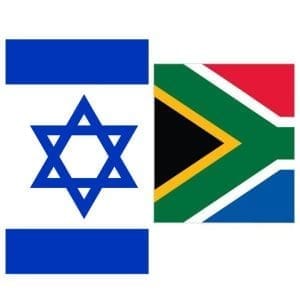
The ongoing Israeli-Palestinian conflict has garnered international attention for decades, with various nations expressing opinions and taking actions to influence the situation. One such instance was the judgement rendered by South Africa, which has had a significant impact on the conflict. This article aims to explore the effects of South Africa’s judgement on the Palestinian-Israeli war and its implications for the region.
South Africa has a complex history of apartheid, which ended in 1994. The country’s experience with racial discrimination and human rights violations has influenced its perspective on global issues, including the Israeli-Palestinian conflict. South Africa has been sympathetic to the Palestinian cause and critical of Israeli policies, leading to a strained relationship between the two nations.
The United Nations General Assembly and the International Court of Justice have declared Israeli settlements in the occupied territories as illegal under international law. South Africa’s stance aligns with these declarations and the broader international consensus, which calls for a two-state solution based on the 1967 borders.
South Africa’s Judgement
In 2019, the South African Human Rights Commission (SAHRC) issued a report labeling Israel an apartheid state. This report drew parallels between the treatment of Palestinians and the discriminatory policies under the apartheid regime in South Africa. The SAHRC’s findings were controversial and attracted criticism from Israel and its supporters.
The judgement by the SAHRC had several implications for the Palestinian-Israeli conflict:
1. Diplomatic Relations: The judgement strained diplomatic relations between South Africa and Israel. South Africa downgraded its embassy in Tel Aviv and suspended military cooperation, signaling its disapproval of Israeli policies. This move aligned South Africa with the Boycott, Divestment, and Sanctions (BDS) movement aimed at putting economic pressure on Israel.
2. International Perception: South Africa’s judgement strengthened the international perception that Israel’s treatment of Palestinians violates human rights and international law. It bolstered the global narrative of Israeli occupation and expanded support for the Palestinian cause, particularly among human rights organizations and pro-Palestinian activists.
3. Palestinian Empowerment: South Africa’s judgement served as a source of inspiration and encouragement for the Palestinian people. It highlighted that a nation with a history of overcoming apartheid recognized their struggle and called for justice. This recognition provided Palestinians with a renewed sense of hope and determination in their pursuit of self-determination.
4. Israeli Response: Israel vehemently rejected the South African judgement, labeling it as biased and politically motivated. The Israeli government argued that the comparison to apartheid was unfair and failed to acknowledge the complexities of the Israeli-Palestinian conflict. Israel’s response further deepened the divide between the two nations.
5. Regional Impact: South Africa’s judgement had a ripple effect across the African continent and the broader Middle East. It influenced other African countries to reevaluate their relationship with Israel and consider taking similar positions. Additionally, it contributed to the growing solidarity between African nations and the Palestinian cause, strengthening the global movement advocating for Palestinian rights.
South Africa’s judgement on the Israeli-Palestinian conflict has had a significant impact on the ongoing war. It has strained diplomatic relations between the two nations, increased international criticism of Israeli policies, empowered the Palestinian people, and influenced regional dynamics. However, it is essential to recognize that the conflict is complex, and a comprehensive resolution requires dialogue, negotiation, and compromise from all parties involved. South Africa’s judgement serves as a reminder of the international community’s role in advocating for a just and lasting solution to the Israeli-Palestinian conflict.










